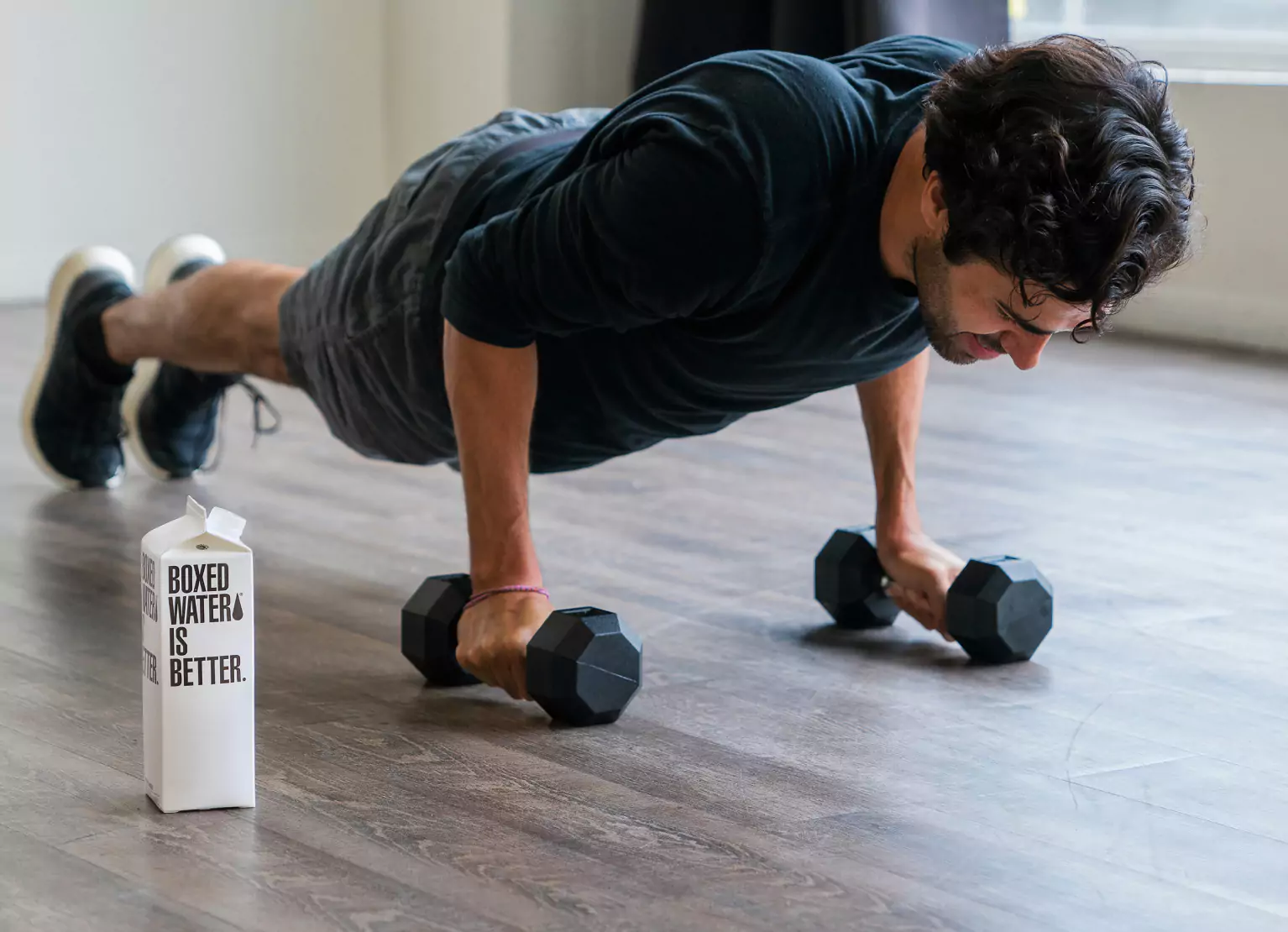Healthy Ways for Stress Relief

Key Takeaways
Are you often stressed? If so, you're not alone. According to the American Psychological Association, stress is one of the most common mental health problems in the United States.
There are many different approaches to managing stress, and whatever works best for you will likely depend on your own needs and preferences. However, some tried-and-true methods address stress's physical, mental, and emotional aspects.
For example, getting more physical activity, positive thinking, maintaining good sleep hygiene, a healthy diet, and stable blood glucose levels can all reduce feelings of stress, anxiety, and depression.
Whatever strategies you choose to try, ensuring that you take care of your physical and mental health is key to overcoming stress. Here are some tips and tricks to help you get started.
1) Add Exercise to Your Daily Routine

One of the most effective ways to relieve stress is by incorporating exercise into your daily routine.
Exercise releases endorphins, which have mood-boosting effects. It also helps to improve sleep quality, which can be adversely affected by stress, can distract you from stressful thoughts, and help to increase feelings of self-efficacy.
Because of these benefits, even a moderate amount of exercise can be an effective stress reliever. If you're wondering what that is—the recommendation is at least 150 minutes of moderate-intensity aerobic activity per week for adults.
Activities to Try
- If you're too busy for an involved workout, try taking a brisk walk during your lunch break. Even small changes can make a big difference to your overall stress levels.
- Make time to find an activity that you love. You could use an app like ClassPass to try different things.
Other Added Health Benefits
- Regular exercise can lower your risk of other health conditions like heart disease.
- Exercise is a vital part of weight loss and weight maintenance.
- Regular exercise can lead to better sleep quality, which may, in turn, reduce stress levels.
2) Eat More Whole, Nutrient-Dense Foods
In today's fast-paced world, it's more important than ever to take care of your body and mind. When it comes to stress relief, what you eat can be just as important as stress-relieving practices like meditation.
The food you consume provides your body with the nutrients it needs to function correctly. When you’re under stress, your body works overtime, depleting those nutrients quicker. A diet of whole, nutrient-dense foods helps replenish those nutrients and gives your body energy to cope with stress.
Some great examples of nutrient-dense foods include dark leafy greens, fresh berries, and wild-caught fish. Including these foods in your diet can help improve your mood, increase energy levels, and reduce stress.
Other Healthy Foods to Try
- Avocados, bananas, and dark chocolate are good sources of magnesium, a mineral that may reduce anxiety and improve sleep quality.
- Leafy greens like spinach and kale are rich in folate, a nutrient that helps the body produce feel-good chemicals like serotonin.
- Fatty fish like salmon, sardines, and tuna are high in omega-3 fatty acids, which have links to lower levels of stress and anxiety.
- Nuts and seeds are other excellent sources of magnesium, zinc, and selenium, which have relaxing properties.
Other Added Health Benefits
- Nutrient-dense foods provide the needed vitamins and minerals that our bodies use to thrive without added the fats, empty calories, and excess sodium often found in processed foods.
3) Reduce the Amount of Time Spent in Front of Screens

In today's modern world, we're constantly connected. All our electronic devices, from smartphones and laptops to TVs and video game consoles, provide entertainment and help us communicate, but they come with significant downsides.
One of those downsides is that constant exposure to media can be stressful and distracting, pulling us away from the tasks at hand and making it difficult to focus on the present moment.
The bright lights and images found on TV, laptops, phones, and tablets can overstimulate your brain and increase stress hormones. Disconnecting a bit will help you calm down and regain mental clarity.
Different Activities to Try
- Try turning your phone off overnight or set boundaries around your screen time.
- Try playing board games or building puzzles instead of playing video games.
Other Added Health Benefits
- Based on a study conducted in 2018, people who reduced their screen time reported better mental well-being.
- The Mayo Clinic states that reduced screen time is connected with improved physical health.
4) Limit Your Caffeine Intake
Caffeine is a stimulant that can give you a much-needed energy boost, but it can also lead to increased anxiety and restlessness.
Caffeine can also aggravate existing stress by raising your heart rate and blood pressure. It can also make you more likely to experience anxiety and panic attacks.
Caffeine acts on the nervous system, making it harder to relax, and it can also cause sleep problems, adding to your stress levels. If you're struggling with stress, limiting your caffeine intake may help you feel more relaxed.
Alternatives to Caffeine
- Try swapping out your morning coffee for decaf or herbal tea.
- Avoid having any caffeine after lunchtime for better sleep.
Other Added Health Benefits
- A study released by the National Library of Medicine (NIH) shows that caffeine-free adults sleep better.
- Caffeinated beverages like coffee are acidic, and eliminating them can improve dental health.
5) Create Time for Leisure Activities

If you work long hours, rush from one chore to the next, and then go to bed thinking of all the work you still have to do, you're not giving your body or mind a chance to relax.
Between work, family, and other obligations, it can be hard to find time for leisure. But it's essential to find ways to relax, de-stress, and engage in activities that don't seem important enough to press pause on your responsibilities over.
Why? Because when you're under pressure all day, every day, your body can go into fight or flight mode, releasing stress hormones like adrenaline and cortisol. It can lead to physical symptoms like an increased heart rate, difficulty breathing, and tense muscles.
Over time, chronic stress can contribute to serious health problems like anxiety, depression, heart disease, and obesity. That's why it's so important to find ways to let off steam and relax.
Activities to Try
- Dedicate an hour or two each week to doing something that you enjoy, whether it’s taking a walk, playing a sport, or reading a book.
- Take a few minutes each day to do something that relaxes you, such as listening to music or taking a nature break.
Other Added Health Benefits
- Research shows that recreational activities positively affect your outlook, confidence, and happiness.
- Research from Ohio State University shows that making time for these activities may lead to lower levels of depression.
6) Practice Yoga or Meditation
Meditation and yoga are two popular stress relief techniques that help reduce anxiety and promote relaxation.
Yoga is a form of exercise that helps improve flexibility, strength, and balance. It also helps focus on breathing, which can be very calming. Meditation allows you to focus on the present moment and clear your mind of racing thoughts.
Both practices involve focusing on the breath and being present in the moment, which can help calm your mind and body. Research has shown that meditation can help lower blood pressure, improve sleep, and reduce symptoms of depression and anxiety.
Activities to Try
- Try finding a local yoga studio and asking them about their class offerings. See which one appeals to you the most and attend classes.
- YouTube is an excellent resource for yoga and meditation videos. Get a yoga mat and try it at home!
Other Added Health Benefits
- Practicing yoga can also help to boost energy levels, increase concentration, and improve sleep quality.
- Some research shows yoga may help treat addiction issues too.
7) Take a Nature Hike or Walk

Taking a nature hike or walk can be a great way to reduce stress. Studies have shown that being in nature can help lower levels of the stress hormone cortisol.
Walking in nature also helps boost your mood and increase feelings of wellbeing. In addition, hiking or walking gives you a chance to get some exercise, which is another excellent way to reduce stress.
Immersing yourself in nature can help reset your mind and body and recharge your batteries.
Activities to Try
- Find a local park or trail nearby, take a walk, or simply enjoy sitting under the shade of a big tree.
- Plan a weekend and go camping with your family or friends.
Other Added Health Benefits
- Studies have shown that being in nature can help lower blood pressure, heart rate, and levels of the stress hormone cortisol.
- Exposure to nature can help increase levels of serotonin, a neurotransmitter that helps regulate mood and promote feelings of happiness.
8) Consume Less Alcohol

When it comes to coping with stress, many people turn to alcohol to relax and unwind.
However, drinking alcohol is not an effective way to manage stress long-term. In fact, drinking too much alcohol can lead to additional stress and anxiety.
Here's why that may sound surprising: Alcohol is a central nervous system depressant, which means that it can initially help to calm the nerves. However, over time, alcohol consumption can disrupt the normal functioning of the brain and nervous system, leading to further anxiety and stress.
Alternatives to Alcohol
- There are many alternative alcohol-free beers and cocktails. Most bars even carry alcohol-free beverages or would be willing to make you a mocktail.
- Add fresh citrus to club soda for a refreshing alcohol-free sipper.
Other Added Health Benefits
- You’ll save more money by avoiding alcohol on nights out with friends.
- Drinking less alcohol has been linked to weight loss.
9) Set Realistic Goals and Expectations
Sometimes, trying to alleviate stress can be the thing that leads to more stress! So when it comes to stress relief, make sure you set realistic goals.
It's crucial to recognize that you can't change or control every situation and learn that it's okay to accept these as they are. Setting unattainable or overly ambitious goals can lead to frustration and disappointment, causing stress to snowball out of control.
As with any form of change, progress will likely happen gradually, so try to stay positive, even if you don't see immediate results. With time and patience, you will learn to effectively manage your stress and improve your overall quality of life.
Activities to Try
- It's vital to start by identifying the specific sources of your stress. Once you have a clear picture of what is causing you tension, you can begin working on relevant solutions.
- Keep a record of your progress and failure to track what works—and what doesn't. It will help you set more realistic goals as you progress.
Other Added Health Benefits
- You may find that setting realistic goals and expectations may lead to you being able to enjoy more free time and leisure activities because you won’t constantly be hung up on them.
10) Hug Your Loved Ones & Connect With Others

One of the most effective stress relievers is human contact. Whether it's a hug from a loved one or a handshake with a new acquaintance, physical touch can help to release oxytocin.
Oxytocin is sometimes referred to as the “cuddle hormone” or the “love hormone” because it is released during physical contact like hugging, kissing, and physical intimacy.
Activities to Try
- There are many ways to connect with others, such as talking to friends and family or joining a support group.
- Volunteer your time to help others, reducing stress while making you feel good about yourself.
Other Added Health Benefits
- Human contact may lower blood pressure and heart rate, both of which spike because of stress.
- Spend more romantic time with your partner, even if it only involves non-sexual touch.
11) Add Laughter to Your Day
Everyone knows the saying “laughter is the best medicine,” but did you know that it can actually help reduce stress levels?
When you laugh, your body releases endorphins, which have mood-boosting and pain-relieving properties. Laughter also helps increase oxygen intake, which can improve brain function and help to reduce stress hormones.
Activities to Try
- Watch a funny movie with your significant other or friends.
- Be adventurous and go to a comedy club.
- Read the comic strips in your daily newspaper.
Other Added Health Benefits
- Laughter can increase feelings of relaxation because it relaxes your muscles afterward.
- Laughing 10 to 15 minutes every day can be good for your physical health, too—it can burn up to 40 calories!
12) Get Good Quality Sleep

Getting good quality sleep is one of the most effective ways to reduce stress and improve mental health. Studies show that poor sleep can significantly increase stress hormones like cortisol, which can play a significant role in feelings of anxiety, depression, and other negative emotions.
Getting enough rest each night and prioritizing sleep hygiene can improve your moods and boost overall mental wellbeing.
Activities to Try
- Avoid caffeine late in the day.
- Make an effort to make your sleeping environment comfortable and relaxing.
- Practice relaxation techniques like deep breathing or progressive muscle relaxation.
Other Added Health Benefits
- Getting a good night’s sleep can improve your immune function.
- Sleeping well after learning can lead to increased memory retention.
13) Start Practicing Gratitude
When you focus on the things you're grateful for, it can help shift your perspective and enable you to see the positive aspects of your life. In turn, this will help reduce stress levels.
Practicing gratitude is simply taking time each day to reflect on what you're grateful for. It can be done first thing in the morning, before bed, or at any other time that works for you. The important thing is to be consistent.
Activities to Try
- Keep a gratitude journal and list a few things you're thankful for each day.
- Make it a point to verbalize your gratitude to others throughout the day.
Other Added Health Benefits
- According to research, gratitude can help you to build stronger relationships.
- Practicing gratitude can help to increase your self-esteem.
Find the right Nutrisense programto turn insight into progress.
Go Beyond Glucose Data with Nutrisense
Your glucose can significantly impact how your body feels and functions. That’s why stable levels are an important factor in supporting overall wellbeing. But viewing glucose isn't enough. Nutrisense, you’ll be able to learn how to use your body's data to make informed lifestyle choices that support healthy living.
One-to-one coaching
Sign up to access insurance-covered video calls to work with a glucose expert: a personal registered dietitian or certified nutritionist who will help tailor your lifestyle and diet to your goals.
Monitor and measure what matters
With the Nutrisense CGM Program, you can monitor your glucose with health tech like glucose biosensors and continuous glucose monitor (CGM)s, and analyze the trends over time with the Nutrisense App. This will help you make the most informed choices about the foods you consume and their impact on your health.
Find your best fit
Ready to take the first step? Start with our quiz to find the right Nutrisense program to help you take control.

Amanda is a Nutrition Manager and Registered Dietitian, with a Masters in Dietetics from Stephen F. Austin State University. Originally from south GA, she got her undergrad degree from Texas Tech University. She worked at a hospital in Fort Worth, TX, for 4 years as a dietitian, counseling those living with HIV.




